Lemon tree losing green leaves
HU-530658786
5 years ago
Featured Answer
Comments (137)
Denise Becker
5 years agoMeyermike(Zone 6a Ma.)
5 years agolast modified: 5 years agoRelated Discussions
Meyer lemon tree losing leaves
Comments (4)Huntro: I think watering thoroughly at least once a week is your problem. Yellowing leaves, followed by leaf drop, is fairly typical of overwatering. Try watering only when you are certain the soil in your pot has dried out; that may be a period of two weeks, depending on your soil. Citrus requires less water than most other fruits and potted plants, and it is easy to rot citrus roots in waterlogged soil. I also believe it is good practice to re-pot plants like Meyer Lemon about every third year, just on general principles. Fresh soil that drains well and a little root pruning should help to re-invigorate your plant, and that is what I would do with it now, just in case there is some life left in the roots. Don Yellman, Great Falls, VA...See MoreIndoor lemon tree losing leaves at the bottom
Comments (3)What kind of low temperatures are you getting right now? It needs to be outside if you are not having temperatures close to freezing. That will cure you leaf drop. Also your lemons are ripe. I dont know what kind it is or if they hold well on the tree but with just a few and that tree being smaller and having trouble I would remove them. Mike...See MoreNew lemon tree losing the few leaves it came with – too many blossoms?
Comments (11)Hi Mike, thanks for that encouragement. I wasn't expecting to be able to produce fruit from this tree during the winter months. My first goal would just be to get a single lemon, maybe next summer, maybe the summer after that. I'm patient. The blossoms are wonderful and even just having them bloom is enough to make me happy at this point. I just want to make sure the plant is happy as well. I don't believe it has been warm enough outdoors yet to put this outside. I live in the Canadian maritimes and it's often windy and cool up here. It will be getting quite warm soon but it's only April still. Soon as it's at least room temperature outside, perhaps then is a good time to consider bringing it outside during the day? I have a cold frame I built onto the southwest face of my house where I'm growing my vegetable starts (tomato, pepper, eggplant, etc.). I just stuck it in there today and so far so good. It's about 70% humidity in there. But it still gets down to the single digits (Celsius) at night even though I cover the frame with a couple blankets. Hoping that isn't too cool for the citrus; I might bring it inside at night for the time being. It receives a minimum of 8 hours of sun. I still need to find a good liquid fertilizer. Do I have vinegar... well, sure, I've got white and apple cider in my kitchen. Is that useful for citrus trees? I'm not sure what kind of soil it came with but I can see perlite and the odd wood shaving... It looks fairly coarse. I'm not sure why it took so long to dry out the first time but I'll keep an eye on it....See MoreLemon Tree Losing It's Leaves... What do I do?
Comments (52)Hi all. I take care of a university biology department's collection of plants here in Connecticut and have grown citrus at home for over forty years. My take on the above issues follows. First, my Meyer lemons that get a good dose of cold before I move them inside (this year around Halloween) often drop many of their leaves and then soon break out into the same kind of flowering cycle seen on the second plant. They are more prone to dropping most of their leaves in November than any of the other citrus I care for. Next, when the tip of a branch begins to die back as in the photo, you should use a sharp pair of secateurs (sterilized in bleach solution) and prune it back to green wood just above a leaf node ASAP. Leaving the dying tip is only causing more tissue to die. Next, I think both the plant that shed all its leaves in a week and the one that consists of just a single stem are in pots that are much too large for them, especially given that they are in regular potting soil and seem to be in cool home environments without a great deal of sunlight. The single-stemmed plant would probably be quite happy in a five inch diameter pot. Over-potting makes the cooler conditions the plants encounter in the fall and indoors more likely to cause root rot which can kill a citrus tree quite quickly (I've done it to a couple of my own trees: they drowned). The test I'd do is to get them out of their pots and see if there are a decent number of roots spreading through most of the soil. If a plant that has been in a container for several months is lifted from the pot and when this is done large gobs of soil simply fall away, that's a good reason to put the plant into a smaller container. There's no good rule for this, but I'll note that most of my older citrus (15 to 30 years old) are in containers that are about 1/3 as high and 1/3 as wide as the plants. A typical example: I have a Key lime in an 11 inch wide and 10 inch tall pot (with soil to within three inches of the top and an inch of bark chips on top of that). The Key Lime has a 1 inch diameter trunk at the base and is roughly 2.5 feet wide and 2.5 feet tall. Soil considerations. At home, I long used regular brands of potting soil picked up at Home Depot (non-moisture control) with success for decades but then had a bad experience when I used a more expensive brand from a garden center that had too much ability to hold water--the bottom of two pots turned to mud. In the aftermath of that experience, I researched my options. For what it is worth, I've adopted the following mix at the greenhouse: 1/2 Al's Gritty Mix plus 1/2 ProMix BX. Al's Gritty Mix consists of three ingredients 1/3 Turface (the stuff used on baseball infields), 1/3 Grani-grit (rough granite chips for chickens to grind their food in their gizzards), and 1/3 fine bark mulch. I do not sift or sieve any of these things but simply pull out any overly large bits of wood from the bark mulch or mix if I see them. I found that Al's mix alone drained and dried out far too quickly in the greenhouse. You can obviously vary the amounts or omit one of the Al's ingredients and still have a much better mix than what you'll buy at Home Depot. A cactus might get 1/3 ProMix BX and 2/3s Al's, etc. I use the 1/2 and 1/2 mix for most succulents and cacti, including Desert Roses. Oh, and I've found that covering the soil surface with larger bark chips is a great way to reduce the fungus gnat population, but that problem is also helped by shifting to a mix that has less peat in it or by NOT repotting your plants just prior to bringing them in for the winter (the fungus gnats are particularly attracted to new potting soil with its fresh peat)....See MoreDenise Becker
5 years agolast modified: 5 years agoMeyermike(Zone 6a Ma.)
5 years agolast modified: 5 years agoDenise Becker
5 years agotropicofcancer (6b SW-PA)
5 years agoDenise Becker
5 years agolast modified: 5 years agoMeyermike(Zone 6a Ma.)
5 years agolast modified: 5 years agotropicofcancer (6b SW-PA)
5 years agoSilica
5 years agolast modified: 5 years agoHeruga (7a Northern NJ)
5 years agolast modified: 5 years agoMeyermike(Zone 6a Ma.)
5 years agolast modified: 5 years agotapla (mid-Michigan, USDA z5b-6a)
5 years agolast modified: 5 years agoDenise Becker
5 years agojaydub83
5 years agoHeruga (7a Northern NJ)
5 years agolast modified: 5 years agotapla (mid-Michigan, USDA z5b-6a)
5 years agolast modified: 5 years agonanzjade z5 MA
5 years agoMeyermike(Zone 6a Ma.)
5 years agolast modified: 5 years agotapla (mid-Michigan, USDA z5b-6a)
5 years agolast modified: 5 years agoSilica
5 years agolast modified: 5 years agonanzjade z5 MA
5 years agoO J
5 years agotropicofcancer (6b SW-PA)
5 years agotropicofcancer (6b SW-PA)
5 years agotapla (mid-Michigan, USDA z5b-6a)
5 years agolast modified: 5 years agoTheyCallMeDave
5 years agotapla (mid-Michigan, USDA z5b-6a)
5 years agolast modified: 5 years agoponcirusguy6b452xx
5 years agolast modified: 5 years agotapla (mid-Michigan, USDA z5b-6a)
5 years agotropicofcancer (6b SW-PA)
5 years agolast modified: 5 years agotropicofcancer (6b SW-PA)
5 years agolast modified: 5 years agotapla (mid-Michigan, USDA z5b-6a)
5 years agolast modified: 5 years agoMeyermike(Zone 6a Ma.)
5 years agolast modified: 5 years agotapla (mid-Michigan, USDA z5b-6a)
5 years agoMeyermike(Zone 6a Ma.)
5 years agotapla (mid-Michigan, USDA z5b-6a)
5 years agoO J
5 years agolast modified: 5 years agoLemon Lime Orange Zone 6a
5 years agoMeyermike(Zone 6a Ma.)
5 years agolast modified: 5 years agoponcirusguy6b452xx
5 years agoMeyermike(Zone 6a Ma.)
5 years agolast modified: 5 years agoMeyermike(Zone 6a Ma.)
5 years agolast modified: 5 years agotapla (mid-Michigan, USDA z5b-6a)
5 years agolast modified: 5 years agoMeyermike(Zone 6a Ma.)
5 years agolast modified: 5 years agoO J
5 years agolast modified: 5 years agotapla (mid-Michigan, USDA z5b-6a)
5 years agolast modified: 5 years agoO J
5 years agolast modified: 5 years agotropicofcancer (6b SW-PA)
5 years agolast modified: 5 years ago
Related Stories
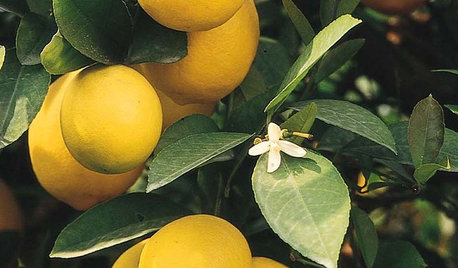
EDIBLE GARDENSThere’s a Lot to Love About a Meyer Lemon Tree
See how to grow this sweet fruit tree
Full Story

GARDENING GUIDESTree Care: Common Tree Diseases and What to Do About Them
Learn to recognize trees that may be affected by diseases or pests so you can quickly take action
Full Story
GARDENING GUIDESHow to Keep Your Citrus Trees Well Fed and Healthy
Ripe for some citrus fertilizer know-how? This mini guide will help your lemon, orange and grapefruit trees flourish
Full Story
FALL GARDENING11 Trees for Brilliant Fall Color
Give your landscape the quintessential look of autumn with the red, orange and yellow leaves of these standouts
Full Story
HOUSEPLANTSGet a Dash of the Rain Forest With Madagascar Dragon Tree
This living decoration reaches up to 15 feet, has minimal needs and adapts to different light levels — just steer clear of fluoride
Full Story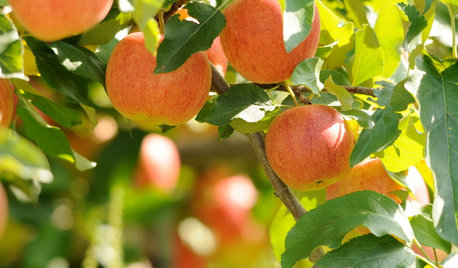
WINTER GARDENINGHow to Prune Your Fruit Trees in Winter
Garden chores may slow down this season, but pruning your fruit trees now means healthier plants that will produce more
Full Story
GREEN BUILDING3 Things to Know About Building a Green Home
Take advantage of the newest technologies while avoiding potential pitfalls
Full Story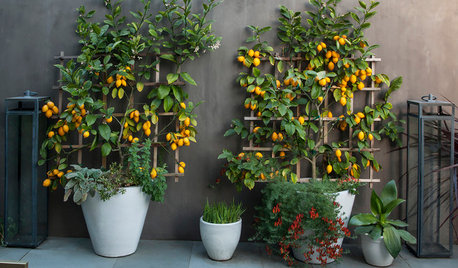
TREES10 Top Trees to Grow in Containers
These container-friendly trees make great specimens for pots on the patio or marking an entrance
Full Story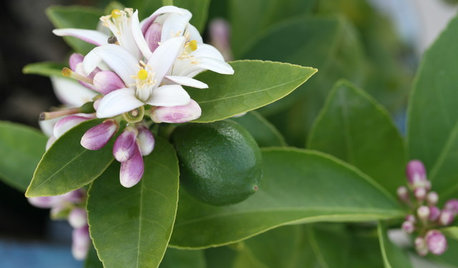
GARDENING GUIDESA Versatile Lime Tree Is a Happy Addition to a Warm-Winter Garden
What can you do with a lime tree? Quite a lot, as it happens
Full Story


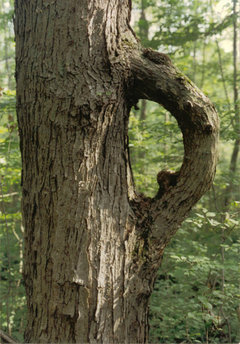

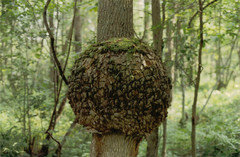


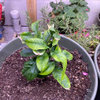
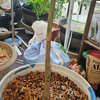
Meyermike(Zone 6a Ma.)